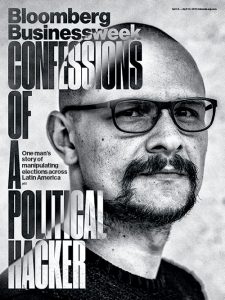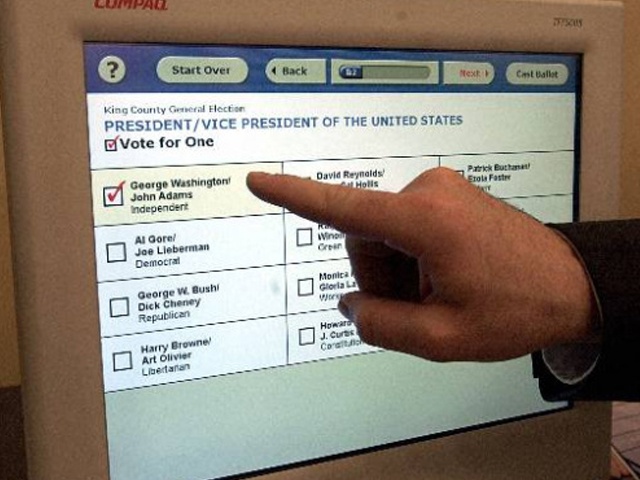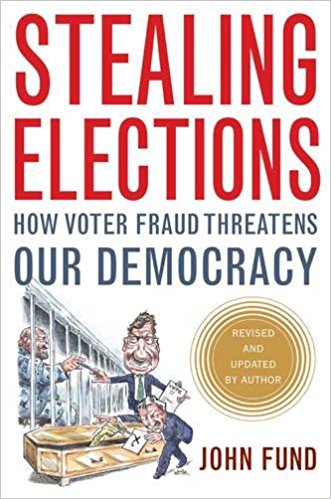Hacking Democracy
You participate in democracy. You send your vote off to a central computer, somewhere. What could possibly go wrong?
We at Mind Over Mystery are not sure which is the more interesting story–that since the dawn of computer voting several elections have, at a very high probability, been electronically stolen…or the other story. The remarkable fact that a complacent public either doesn’t know, or doesn’t care.
The full explanation regarding electronic voter fraud runs long and somewhat technical at times, but the simplest, common-sense thinking should snap everyone to attention. Think about the times you’ve had to change credit card numbers, because a major corporation like Target or Home Depot had been hacked, and your information could not be guaranteed as secure. Think about the breach of official government personnel files.
Then think of all the other hacking schemes you’ve heard about, perhaps Koreans or Russians or Chinese invading the very private electronic space of a major corporation. Aren’t you convinced by now that the cat-and-mouse game of security versus hacker remains a delicate battle, always? That computer criminals have computer code running straight through their veins, that they eat, sleep, and dream ways to outwit the system to their advantage.
Then why would you doubt, for even an instant, that the folks who build and manage electronic voting systems have the means, and perhaps the motive, to misuse technology? Winning political control of a major office can be worth millions, the candidates certainly spend tens of millions and nationally in the billions. Why doubt, then, that some would invest serious money to buy the services of especially savvy computer system designers?
The accusations that some elections have already been electronically altered are abundant. Here we’ll explore the evidence, logic, and troubled early history of electronic voting.
When the first stories were broken by a handful of us after the fiascos of Florida 2000 and Ohio 2004, there was a stunning silence, followed by a wide range of attacks. Today the warnings about the possibility of another election theft are taken with increasing gravity.
The question is deep and profound, with a huge body of research and writing surrounding it.
But among the many concerns, two are key: massive disenfranchisement, and manipulation of the electronic vote count.
DISENFRANCHISEMENT:……….
There has been massive stripping of voter rolls, often by electronic means, as was done in Florida 2000 and Ohio 2004. Much of the disenfranchisement has focused on the inner cities which, again, lean heavily Democratic. In Ohio, more than a million citizens—some 20% of the electorate—have lost their right to vote this way since 2009. The phenomenon is clearly nationwide. “
From Free Press, comments which exemplify minority suspicion of the voting process..
November 3, 2012
DEMOCRACY AND CORRUPTION
Scott and Spaniel, “Hacking Elections is Easy!”, 2016, p.7
In 1988 in Mexico, the populist candidate for President, Cuauhtemoc Cardenas (son of former popular president Lazaro Cardenas) was said to be leading the establishment candidate Carlos Salinas de Gortari on election night as national results were being tallied. Then suddenly, the huge computer system that centrally counts all the votes in Mexico City “went down,” crashed for some reason. In time, it’s functions were restored.
But lo and behold, Cardenas seemed to have lost his lead. Salinas de Gortari now had a hold on the results, and would be declared the winner before the night was over, the “elected” leader of some 100 million people for the next six years. Among a populace skeptical of official government proclamations there was never much doubt about what had happened. It’s now accepted, even conceded by high Mexican officials, that voter fraud was likely.
Those hearing those tales in English-speaking North America, or perhaps reading about them in the advanced democracies of Europe might well be dismissive–“well, that’s Mexico, I guess it functions like the banana republics further south.” But not so fast! For one thing, citizens everywhere want good faith efforts to ensure democracy on the up-and-up. And for another, nations like the U.S. and France, known as cradles of democracy, have their full share of corrupt history with elections.
Even one or a very small group could influence a few, critical votes. Writing primarily for a U.S. American audience, Scott and Spaniel stress how often major elections have hung by a slender thread, raising the question of who might snip off a thread that delicate:
Scott and Spaniel, “Hacking Elections is Easy!”, 2016, p.7
The method, the means by which people cast a ballot to make their will known, has it’s own rich history, and some of that’s discussed in the first nine minutes or so of the interview available on YouTube linked below.
Here our computer science professor discusses the modern day where “touch screens,” or “direct record entry” (DRE) machines are fast becoming the standard–you touch a screen and info goes into the computer, “creating a record of your ballot (in the computer).”
“These are the ones I find to be most problematic.”
“So there’s a real danger of error, or theft in these cases?” asks the host.
“All sorts of things could be happening inside the machine,” she replies.
After all, it’s all electrons…
If you want to skip the history and cut straight to the modern problem, pick up this video at about the 9:40 mark, and then hang in for the next five or six minutes.
There’s a slew of such videos available on YouTube and elsewhere.
We found this one especially compelling because a host of “The Conservative Roundtable” interviewed a woman who’s more “progressive” in her personal politics, yet it caused no friction, no issue at all. Both host and guest fully realize the issue is non-partisan. Electrons don’t know if they’re being manipulated by a Tea Party or a Green Party, by Democrats or Republicans–electrons are smart but not in that particular way.
Our computer science professor explains how cleverly constructed systems can appear to be entirely legitimate, but designed so that a bit of extra code could be slipped in by thumb drive at some private location, code that can change results but then be easily erased. In fact, she says, the system can be corrupted at any number of stages along the way.
And perhaps most disquieting of all, several of the vendors of this modern equipment have managed to include special “trade secret” protections to their proprietary systems–that’s to say that anyone tearing the machines open to have a good look…can be prosecuted for a felony!
The lack of transparency may be an ultimate concern.
The willingness of local and state entities to buy equipment under these restrictions rises as a great concern in itself.
TECHNOLOGY AND TREACHERY
Their sworn witness offered stunning testimony–that he’d worked on computer programs to rig U.S. elections, that the programs could deliver 51% of the vote to any candidate you wanted, and that local election officials would never know it happened.
And thus they asked him, so “how could it be detected?”
“You would have to view it either in the source code, or you’d have to have a receipt and then count the hard paper against the actual vote total. Other than that, you won’t see it.”
That’s the bottom line, but if you’d like to hear this professional programmer recount his experiences directly, to the astonishment of a legislative body, here’s video:
If you take the straightforward proposition that 1) historically elections have been tampered with any way they can be, and 2) electronic voter fraud offers an obvious avenue for stealing elections–then, you’d think that the U.S. Congress would have a standing committee, with subpoena power, investigating every election from the last twenty or so years.
Instead, they’re often probe matters so relatively trivial or obscure that most of us don’t even know what matters are being looked into. They generate no significant sound bites for the five o’clock news.
On the other hand, “Congressional Committee concludes that all recent elections have been influenced by computer hacking” would surely catch our attention. We, as a people, seem to be asleep at the switch.
If you needed any more foundation for the belief that stealing elections by computer is very do-able, just watch the brief demo below.
We began our look into the mystery of “Hacking Democracy” with a narrow focus–could savvy computer code-writers flip votes in the electronic world, and thereby flip elections in the real, political one? That simple question seems to generate a simple…Yes!
But we also realize how much broader hacking democracy is.
As this is being written, the news is full of details on possible foreign influence in a recent election cycle, and commentaries have political coloring in all directions.
Yet the issue of Hacking Democracy looms broader than any one election cycle, any political party, any country. Now that the digital age is here, electrons themselves–with skilled human guidance–rise as huge political players.
We hate to sound once again like Latin America owns the problem of corruption, because it’s worldwide of course, but an unusually compelling article found it’s way into our files from the Bloomberg publishing world.
Andrés Sepúlveda, finally in prison in Colombia for some of the crimes of his decade-long career as a professional election hacker in nine Latin countries, went public, his darkly geeky looking face on a magazine cover.
The article’s a good intro to the kinds of political mischief computers can do in the right, should we say wrong, hands.
This Bloomberg Businessweek offering’s important, if you care about fair elections. Any kind of dirty tricks, and often all of them, are launched by these cyber-warriors against political opponents. Where do you draw the line between aggressive electioneering and outright fraud by computer, what do you finally consider an assault on democracy?
Many of Sepúlveda’s examples seem mild, but remember, he did this professionally across important elections full-time, for years. Do we really want “democratic” outcomes to hinge on who can use computers more subversively, who can steal more data, can tell more lies disguised as chatter on Social Media?
‘My job was to do actions of dirty war and psychological operations, black propaganda, rumors—the whole dark side of politics that nobody knows exists but everyone can see…’He wrote a software program, now called Social Media Predator, to manage and direct a virtual army of fake Twitter accounts. The software let him quickly change names, profile pictures, and biographies to fit any need. Eventually, he discovered, he could manipulate the public debate as easily as moving pieces on a chessboard—or, as he puts it, ‘When I realized that people believe what the Internet says more than reality, I discovered that I had the power to make people believe almost anything.’
(The night before) election night (in Mexico in 2012), he had computers call tens of thousands of voters with prerecorded phone messages at 3 a.m. in the critical swing state of Jalisco.
Juan Arrendondo et al, bloomberg. com, March 31, 2016
 Those calls in the middle of the night irritated voters, as they were intended to, and drove them towards his local candidate, an ally of presidential candidate Pena Nieto.
Those calls in the middle of the night irritated voters, as they were intended to, and drove them towards his local candidate, an ally of presidential candidate Pena Nieto.
The article stresses that Juan didn’t always win, but his batting average was pretty good. As Nieto celebrated his upcoming six years at the helm in Mexico on election night, Sepúlveda could of course take no public bow.
But he could bask in the private feeling, ‘I got that guy elected.’
Do we really want to let computers not only count our elections, but run them as well?
THE FUTURE OF DEMOCRACY, CORRUPTION, AND MYSTERY
From all over the world, people have their accounts of the things that corrupt the democratic process.
We open this board to contributors worldwide, hoping to tell some of the best stories.
Do you know of computer programmers who’ve manipulated actual election counts?
Do you know of hacking of social and other media to created “alternative realities” with political ends?
Let’s share stories and evidence here.






